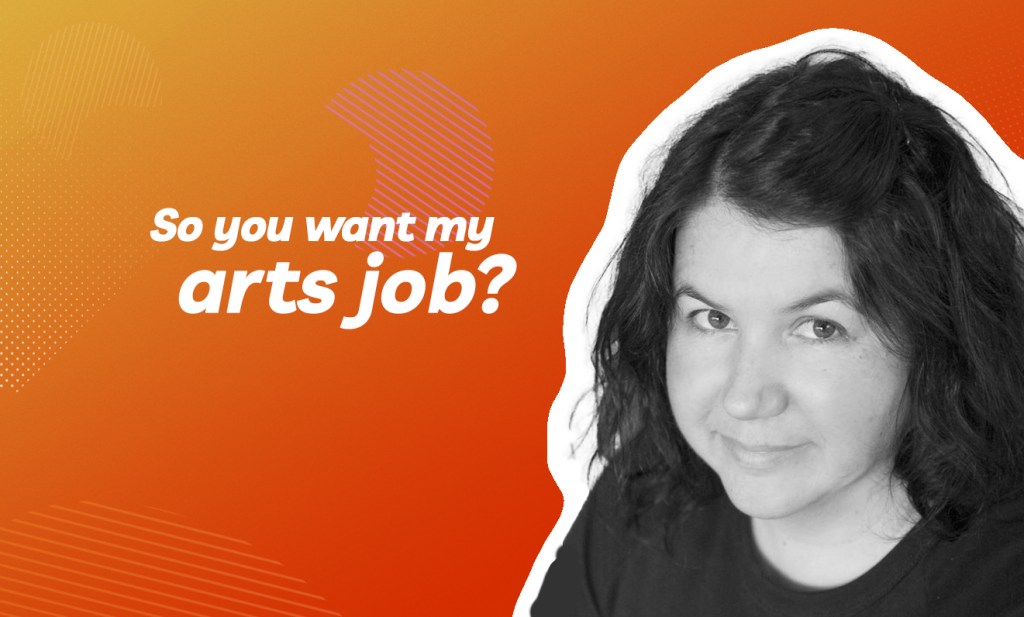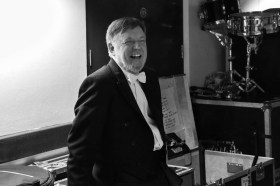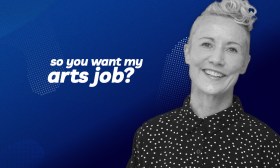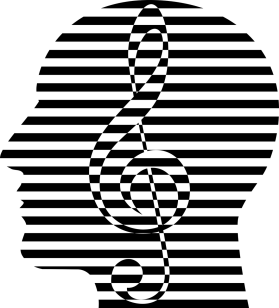Clare Bartholomew has been performing, writing, directing and producing new work internationally for over 20 years. She consults on performance for numerous companies such as the Australian-based Circus Oz, teaching clown and clowning for company members, its Indigenous training program – Blakrobatics and directing pieces for its touring shows.
Bartholomew has been the guest clown teacher at the John Bolton Theatre School for the last two years, also in Australia. She has directed circus works by Batton & Broadway and Splash Test Dummies, and was the director for Fringe Wives Club’s multi award-winning show – Glittery Clittery.
At the moment Bartholomew is a freelance clown and physical comedy teacher, with a recent stint teaching clown at the Victorian College of the Arts (in Melbourne), as well as being a part-time lecturer in Comedy and Live Performance at Collarts. She speaks to ArtsHub about the intricacies, demands and misconceptions of her job.
A physical comedy and clown teacher seems a niche job. How did you first become involved in it?
I was first asked to teach comedy and clown around 25 years ago for a performance workshop series called ‘The Summer Feast and The Winter Feast’, which was run by Cecil Street Studio in Melbourne. It was a great place to begin teaching as I was very ensconced in the movement improvisation community there at the time, and known for my comedic performances.
From there I taught clown at La Trobe University (Melbourne), performance for The Women’s Circus, ran workshops at Circus Oz and began teaching my own clown and physical comedy intensives independently. I also team-taught some two-week intensives with my good friend, the late Derek Plunkett Ives.
Most requests for workshops have come from people who have seen my work live on stage in Otto & Astrid – Die Roten Punkte, The Business and The Long Pigs, which all draw heavily on clown performance skills, strong comedic characters and physical comedy slapstick.
As I had been a student at the John Bolton Theatre School in the early 90s, John invited me to teach clown when he restarted his school in 2015 (until 2019). I have also taught recently at the VCA in the Theatre Makers and Actors courses, Collarts in its Comedy course for the Tasmanian and Australian Circus Festivals, and for the University of Albuquerque, New Mexico, at Atomic Vaudeville in Victoria, Canada and for Handsome Little Devils in Denver, US.
What are some of the things you teach in this course?
Depending on where I am and how long we have will greatly affect what we’ll cover. Obviously teaching a one-off, three-hour workshop is very different to a two-week intensive or a weekly class over a month or two. But essentially, I try and create exercises, tasks and scenarios for solos, duos and small groups where students can explore and express their own joy, vulnerability, playfulness and inner idiot, and practise their pleasure of “being seen” in front of a supportive audience.
My aim is for the workshops to be as practical as possible to assist someone’s ongoing artistic practice. Hopefully, what they discover and play with inside the workshop structure will then inform any live performances where they may need to draw upon physical comedy and clowning skills. Of course, for some performers this physical comedy playful world is all they do and this is the kind of work they are always making and for others it may be only one aspect of their work that they want to delve deeper into.
I would say that being able to draw upon a sense of playfulness and having strong complicité with your fellow performers and the audience actually informs any work, even a dramatic play. I draw heavily from my own experience of performance and devising work to make the workshops as practical and applicable as possible. I also like to honour any previous teachers I’ve had (such as John Bolton) who have influenced my work positively.
What are some of the misconceptions about the job?
I think there are huge misconceptions about clown, and what it is, in general. A lot of people think clown is just tricks, and associate clown with the stereotype of some traditional circus clowns who wear lots of make-up, squirt the audience with water and can appear to be pretty insensitive.
There are also films that really play up the “scary clown” trope, which I would say is really just a “scary clown costume”, a genre of horror clown and very little to do with the actual art form of clowning, but these films that are genuinely scary can then lead to people feeling afraid of all types of clowns. It’s important to distinguish that there’s a massive difference between a performer using clown skills in performance from these other unhelpful stereotypes.
I have also worked as a clown doctor within children’s hospitals for over 24 years. We wear very little make-up, no fright wigs and often need to be soft and subtle as well as funny, depending on the child and where they’re at in their hospital journey. We work closely with healthcare professionals and need to be extremely aware of our environment and work thoughtfully within it to playfully change the atmosphere into one where a lot of play, laughter and joy can take place. We have to be acutely sensitive to the environment and the needs of patients, their families and staff, so this type of work couldn’t be further away from the clown stereotype some people have in their head.
You wear many professional hats. What other things do you do that feed into/support your job as physical comedy/clown teacher?
I mostly work as a performer and creator of new work. I have been working with my performing partner Daniel Tobias for the last 18 years, creating the cabaret comedy act Otto & Astrid – Die Roten Punkte. This dysfunctional sibling band has toured internationally numerous times to venues such as Joe’s Pub in New York, Soho Theatre London and La Botanique in Brussels, and extensively around Australia.
We also created the children’s musical Sunny Ray & The Magnificent Moon, The Orchid and the Crow and the non-verbal physical comedy farce, The Anniversary with Peter Houghton. I also direct and work on shows, mostly in circus and comedy with companies and performers such as Batton & Broadway, Dummies Corp, Josh Glanc, Circus Oz, Barnie Duncan, Little Wing Puppets, Bunk Puppets and Emilie Bloom.
I co-created and perform in The Long Pigs, a dark bouffon and clown show with Nicci Wilks, Derek Plunkett Ives (his role is now performed by Mozes) and Susie Dee. I feel that all these artistic collaborations and directing and devising of new work absolutely feeds into my teaching practice and vice versa. It’s really a wonderful loop of collaboration and nutting things out “on the floor” together – what works, why isn’t it working, how to help it work etc…
If you were hiring for your job, what qualities would you be looking for?
I think any teacher should have a love of teaching and being around other folks. Obviously being passionate about what they are teaching and what they are trying to inspire and facilitate in others [is important]. I think some teachers dedicate their life to working solely on their pedagogy and that is the main thing they do and they can be extremely good at imparting their skills.
For me, I feel teaching came directly via my performing and then working out how to distil and impart what I’ve learned from my years of practical experiences in front of live audiences. There are numerous types of clown teachers teaching in a variety of ways; I always encourage people to experience as many different teachers as they can, so they may consider what’s helpful for them and who is resonating for them practically, as this can change massively at different stages of your career.
Read: So you want my arts job: Clown Doctor
What’s the future of physical comedy/clowning?
I think most people love to laugh and have a good time; they want to be entertained, have their funny bones tickled and see themselves reflected on stage and in films. While comedy is a broad church and what one person enjoys will not be someone else’s jam, as long as people are laughing at seeing themselves represented in all our glorious humanity, our trials, tribulations and celebrations, I think clown and physical comedy can be at the beating heart of all of that. So, yes, I would say the future is bright, alive and kicking!





